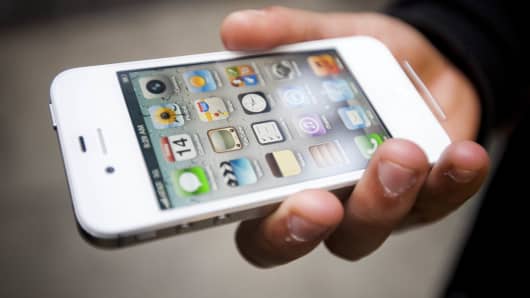The next time you use your smartphone to inquire about migraine symptoms or to check out how many calories were in that cheeseburger, there is a chance that information could be passed on to insurance and pharmaceuticals companies.
The top-20 health and wellness apps, including MapMyFitness, WebMD Health and iPeriod, are transmitting information to up to 70 third-party companies, according to Evidon, a web analytics and privacy firm.
(Read more: Got health insurance? Good luck finding a doctor)
Third parties, which consist primarily of advertising and analytics firms, typically use the information gathered from consumers who are tracking diseases, diets, bicycle trip distances and even menstrual cycles to build profiles or display personalized ads.
(Read more: Health care needs a dose of social media)
"You are talking about some of the most sensitive details of your life being widely available to others," said Jeff Chester, executive director of the Center for Digital Democracy, a consumer privacy group. "That information is being sucked up and collected surreptitiously by a host of online companies that are sharing, selling and trading that information."


